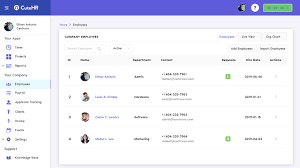Will Refinancing Hurt My Credit? What You Need to Know Before You Apply

Refinancing your loan—whether it’s a mortgage, auto loan, or student loan—can be a smart financial move. It can lower your interest rate, reduce your monthly payments, or help you consolidate debt. However, many borrowers hesitate because they wonder: will refinancing hurt my credit?
The short answer is yes, refinancing can affect your credit—but usually only temporarily. In this article, we’ll explore how refinancing impacts your credit score, the factors involved, and what you can do to minimize any negative effects.
What Does Refinancing Mean?
Before diving into credit impact, it’s essential to understand what refinancing is. Refinancing means replacing an existing loan with a new one, usually to obtain better terms like a lower interest rate or longer repayment period. Common refinancing scenarios include:
-
Home mortgage refinancing
-
Auto loan refinancing
-
Student loan refinancing
-
Personal loan refinancing
So, will refinancing hurt my credit every time? It depends on several key factors, which we’ll explore below.
How Refinancing Affects Your Credit Score
Let’s break down the key ways refinancing can influence your credit.
1. Hard Credit Inquiries
When you apply for refinancing, the lender will typically perform a hard inquiry to check your credit. This can lower your credit score slightly—usually by 5 to 10 points. Fortunately, this effect is temporary, and your score often rebounds within a few months.
Pro tip: If you’re rate shopping, multiple inquiries within a 14- to 45-day window usually count as one inquiry.
2. New Loan Account Opened
Refinancing replaces your old loan with a new one, meaning you’re closing one account and opening another. This impacts your credit in two ways:
-
Average age of accounts: Opening a new account may lower the average age of your credit history.
-
Account mix: A healthy mix of credit types (loans and credit cards) is good for your score. Refinancing doesn’t hurt this, but it changes the structure slightly.
So when you ask, will refinancing hurt my credit, you must understand that it’s not the act of refinancing but the way it’s recorded that matters.
3. Closing an Old Account
When your old loan is paid off, that account is closed. Closed accounts still stay on your credit report for 7–10 years, depending on whether they were in good standing. However, they no longer contribute to your credit utilization ratio or the length of your active credit history.
4. Changes in Credit Utilization (for Certain Loans)
If you’re refinancing credit card debt into a personal loan, your revolving credit utilization could improve. This is good news for your score. So in that case, asking will refinancing hurt my credit may lead to a surprising answer: it might actually help!
How Long Does the Credit Impact Last?
Now that you know how refinancing affects your credit, let’s talk about how long it lasts.
For most people, the credit score dip from a hard inquiry and new account opening is temporary. Scores typically rebound within 3 to 6 months if no other negative activity occurs.
In fact, if your new loan terms are better—resulting in easier payments—you may end up improving your credit score faster than before.
Situations Where Refinancing Might Help Your Credit
In some cases, refinancing can benefit your credit. Let’s explore a few of them:
1. Lower Monthly Payments
With reduced monthly payments, you’re less likely to miss a due date. On-time payments make up 35% of your credit score.
2. Improved Debt-to-Income Ratio
A better monthly payment structure may lower your debt-to-income (DTI) ratio, which lenders consider when evaluating your creditworthiness.
3. Paying Down Revolving Debt
If you’re consolidating high-interest credit card balances into a fixed-term loan, you’ll reduce your utilization ratio. This can lead to a credit score increase over time.
So while people often ask will refinancing hurt my credit, the reality is it can also set the stage for long-term credit improvement.
Tips to Minimize the Credit Impact of Refinancing
Here’s how to ensure that refinancing doesn’t hurt your credit unnecessarily:
1. Shop Around Within a Short Time Frame
Apply for refinancing with multiple lenders—but do it within a 14- to 45-day window. That way, all credit checks count as a single inquiry.
2. Make All Payments On Time
Continue paying your original loan until the refinance is fully approved and disbursed. A missed payment—even by mistake—can seriously damage your credit.
3. Keep Other Credit Use Low
If you’re refinancing to free up cash, avoid maxing out new credit lines. That could hurt your utilization rate and your score.
4. Review Your Credit Report
After refinancing, check your credit report to ensure your old loan is marked as paid and your new loan is reported correctly. Discrepancies can hurt your credit.
5. Avoid Taking on New Debt Immediately
Try not to open other new accounts or rack up balances right after refinancing. Let your score stabilize first.
When Refinancing Might Not Be a Good Idea
While refinancing offers many benefits, there are situations when it might not be ideal:
-
If you plan to apply for a mortgage or big loan soon and can’t afford a credit score dip
-
If the refinancing fees outweigh the financial benefit
-
If your credit is already fragile and a hard inquiry could trigger bigger consequences
In those situations, it’s wise to ask not just will refinancing hurt my credit, but also is it worth it right now?
Final Thoughts
So, will refinancing hurt my credit? Yes—but only slightly and temporarily in most cases. The short-term dip from a hard inquiry or new account is often outweighed by the long-term benefits of lower interest rates, easier payments, and debt consolidation.
Ultimately, the impact depends on how you manage your finances post-refinancing. By staying organized and maintaining healthy financial habits, you can use refinancing as a tool to not only save money—but also improve your credit over time.




